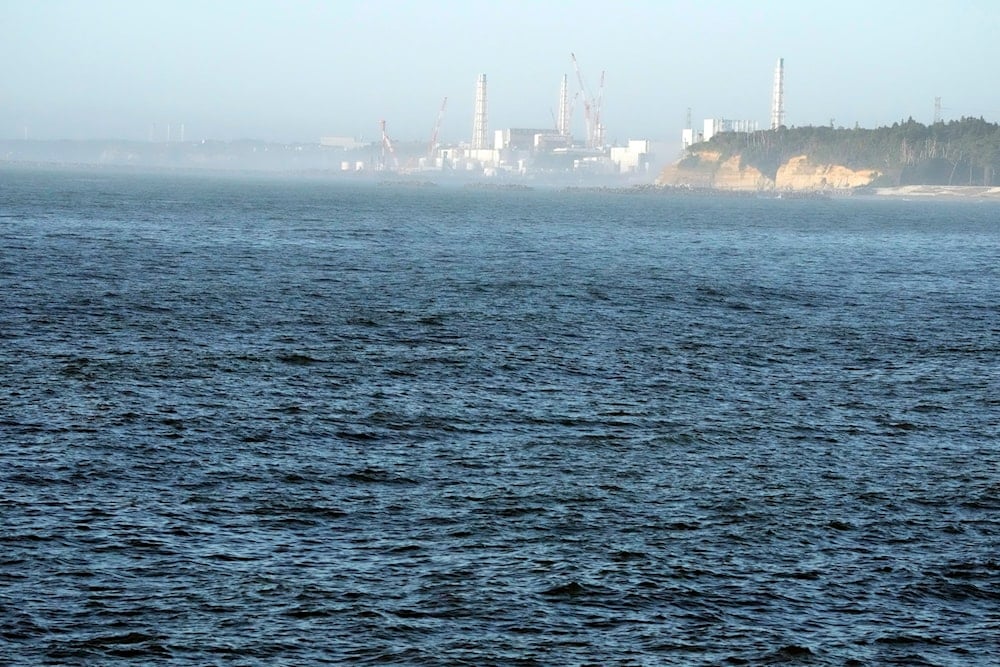Russian scientists find elevated Tritium level after Fukushima release
In response to the discharge of contaminated water from the Fukushima Daiichi nuclear power plant, Russian scientists launched an expedition conducted aboard the "Professor Gagarinsky" research vessel.
-

The Fukushima Daiichi nuclear power plant, damaged by a massive March 11, 2011, earthquake and tsunami, is seen from the nearby Ukedo fishing port in Namie town, northeastern Japan, Thursday, Aug. 24, 2023 (AP)
Scientists in Russia's Primorsky Krai region have detected increased levels of tritium in seawater following the release of treated radioactive water from Japan's decommissioned Fukushima nuclear power plant. This finding was reported by the Pacific Oceanological Institute of the Far Eastern Branch of the Russian Academy of Sciences (FEB RAS) on Monday.
"Laboratory analyses of the first water samples from the 'Akademik Oparin' expedition revealed elevated tritium levels in the main branch of the Kuroshio Current, as expected based on regional current patterns, as well as increased tritium levels near the Southern Kuril Islands," the institute's statement said.
The operator of the Fukushima nuclear power plant, TEPCO, began releasing treated water used to cool damaged reactors into the ocean in August 2023.
The treatment process, known as the Advanced Liquid Processing System (ALPS), removes 62 types of radionuclides but does not eliminate tritium.
Read more: Fukushima under focus as tons of dead fish wash up on Japan's shores
In response to these releases, the V.I. Il'ichev Pacific Oceanological Institute of the Far Eastern Branch of the Russian Academy of Sciences (FEB RAS) launched a new research expedition on August 24, 2024.
The expedition, conducted aboard the "Professor Gagarinsky" research vessel, departed from Vladivostok to study the effects of the contaminated water on marine environments.
This research will particularly focus on the Kuril Islands and the southern Sea of Okhotsk, which are vital fishing areas for Russia.
Additionally, the team will investigate the water exchange between the Sea of Okhotsk and the Pacific Ocean, along with other environmental impacts stemming from the Fukushima water release.
Sparking a wave of panic
After TEPCO began discharging the water into the Pacific Ocean, several countries, including China, reacted strongly.
China immediately banned all imports of Japanese seafood, citing concerns over contamination and safety, which significantly impacted Japan's seafood exports, especially scallops from Hokkaido.
Civic organizations and residents in countries like South Korea also voiced their disapproval, with protests and calls for Japan to halt the water release due to environmental and health concerns.
Japan has defended the safety of the discharge, with support from the International Atomic Energy Agency (IAEA), which has stated that the treated water meets international safety standards and poses negligible risks to the environment and human health.
However, despite these assurances, fears and political tensions remain high in the region, particularly among fishing communities and governments worried about the long-term impacts on marine life and local economies.
Read more: 25-tonne radioactive water leak in Japan's Fukushima-1 confirmed

 3 Min Read
3 Min Read








